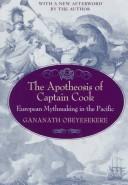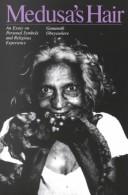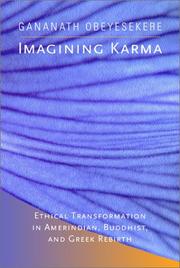| Listing 1 - 10 of 35 | << page >> |
Sort by
|

ISBN: 0691056803 9780691056807 Year: 1992 Publisher: Princeton, N.J. Princeton University Press
Abstract | Keywords | Export | Availability | Bookmark
 Loading...
Loading...Choose an application
- Reference Manager
- EndNote
- RefWorks (Direct export to RefWorks)
Cook, James --- Hawaii --- Ethnology --- -Cultural anthropology --- Ethnography --- Races of man --- Social anthropology --- -Hawaii --- -Polynesia --- -Hawaiian Islands --- Haṿai Inzlen --- Gavaĭskie Ostrova --- State of Hawaii --- Mokuʻāina o Hawaiʻi --- Хаваи --- Khavai --- Гавайи --- Gavaĭi --- Χαβάη --- Chavaē --- 하와이주 --- Hawaiju --- 하와이 --- Гавайтæ --- Gavaĭtæ --- הוואי --- Havajas --- Havajai --- Hahuai --- Tlahtohcāyōtl Hahuai --- ハワイ州 --- Hawai-shū --- ハワイ --- Hawaje --- Хаваји --- Havaiji --- Hauaiʻi --- Hawaii Eyaleti --- Гаваї --- Штат Гаваї --- Shtat Havaï --- האוואי --- 夏威夷州 --- Xiaweiyi zhou --- 夏威夷 --- Xiaweiyi --- HI --- H.I. --- HA --- Hawaii (Ter.) --- Hawaii (Kingdom) --- Hawaii (Republic) --- Hawaii (State) --- Hawaii (Territory) --- Kingdom of Hawaiʻi --- Republic of Hawaii --- Territory of Hawaii --- Hawaii-Inseln --- History --- -History --- -Historiography --- Discovery and exploration --- Anthropology --- Human beings --- -Oceania --- Hawaiian Islands --- Xiaweiyi Zhou --- Гавайтæ --- Гавайи --- -Chavaē --- Oceania --- Ethnology - Polynesia. --- -Cook, James --- Hawaii [state]

ISBN: 0520243072 0520243080 1417585110 1597345229 1282763156 9786612763151 0520938313 9780520938311 9780520243071 9780520243088 9781417585113 Year: 2005 Publisher: Berkeley
Abstract | Keywords | Export | Availability | Bookmark
 Loading...
Loading...Choose an application
- Reference Manager
- EndNote
- RefWorks (Direct export to RefWorks)
In this radical reexamination of the notion of cannibalism, Gananath Obeyesekere offers a fascinating and convincing argument that cannibalism is mostly "cannibal talk," a discourse on the Other engaged in by both indigenous peoples and colonial intruders that results in sometimes funny and sometimes deadly cultural misunderstandings. Turning his keen intelligence to Polynesian societies in the early periods of European contact and colonization, Obeyesekere deconstructs Western eyewitness accounts, carefully examining their origins and treating them as a species of fiction writing and seamen's yarns. Cannibalism is less a social or cultural fact than a mythic representation of European writing that reflects much more the realities of European societies and their fascination with the practice of cannibalism, he argues. And while very limited forms of cannibalism might have occurred in Polynesian societies, they were largely in connection with human sacrifice and carried out by a select community in well-defined sacramental rituals. Cannibal Talk considers how the colonial intrusion produced a complex self-fulfilling prophecy whereby the fantasy of cannibalism became a reality as natives on occasion began to eat both Europeans and their own enemies in acts of "conspicuous anthropophagy."
Cannibalism. --- Cannibalisme --- Cannibalism --- Anthropology --- Social Sciences --- Social & Cultural Anthropology --- Ethnology. --- Cultural anthropology --- Ethnography --- Races of man --- Social anthropology --- Anthropophagy --- Ethnology --- Human beings

ISBN: 9780226615998 0226615995 0226615987 Year: 1990 Volume: 1982 Publisher: Chicago (Ill.) University of Chicago Press
Abstract | Keywords | Export | Availability | Bookmark
 Loading...
Loading...Choose an application
- Reference Manager
- EndNote
- RefWorks (Direct export to RefWorks)
Psychoanalysis and culture --- Symbolism (Psychology) --- Buddhism --- Hinduism --- Sinhalese (Sri Lankan people) --- Psychanalyse et culture --- Symbolisme (Psychologie) --- Bouddhisme --- Hindouisme --- Cingalais (Peuple du Sri Lanka) --- Case studies --- Psychology --- Cas, Etudes de --- Psychologie --- Sinhalese --- Case studies. --- Psychoanalysis and culture - Sri Lanka --- Symbolism (Psychology) - Case studies --- Buddhism - Psychology - Case studies --- Hinduism - Psychology - Case studies --- Sinhalese - Psychology - Case studies

ISBN: 0226616029 9780226616025 Year: 1984 Publisher: Chicago (Ill.) : University of Chicago press,
Abstract | Keywords | Export | Availability | Bookmark
 Loading...
Loading...Choose an application
- Reference Manager
- EndNote
- RefWorks (Direct export to RefWorks)
Pattini (Hindu deity) --- Pattini (Buddhist deity) --- Cult --- Cult. --- Pattini (Hindu deity) - Cult --- Pattini (Buddhist deity) - Cult

ISBN: 0226616002 0226616010 9780226616001 9780226616018 Year: 1981 Publisher: Chicago : University of Chicago Press,
Abstract | Keywords | Export | Availability | Bookmark
 Loading...
Loading...Choose an application
- Reference Manager
- EndNote
- RefWorks (Direct export to RefWorks)
Hair --- Cheveux --- Kataragama (Sri Lanka) --- Symbolism --- Representation, Symbolic --- Symbolic representation --- Mythology --- Emblems --- Signs and symbols --- Religious aspects --- Religious life and customs. --- Kataragama, Ceylon --- Kataragama (Ceylon) --- Katirkāmam (Sri Lanka) --- Katharagama (Sri Lanka) --- Religious life and customs --- Symbolism. --- Religious aspects. --- Symbolisme --- Folklore. --- Folklore --- Vie religieuse --- Hair - Religious aspects --- Kataragama (Sri Lanka) - Religious life and customs
Book
ISBN: 9780231153621 0231153627 9780231527309 0231527306 1280599553 9786613629395 0231153635 9780231153638 Year: 2012 Publisher: New York Columbia University Press
Abstract | Keywords | Export | Availability | Bookmark
 Loading...
Loading...Choose an application
- Reference Manager
- EndNote
- RefWorks (Direct export to RefWorks)
While a rational consciousness grasps many truths, Gananath Obeyesekere believes an even richer knowledge is possible through a bold confrontation with the stuff of visions and dreams. Spanning both Buddhist and European forms of visionary experience, he fearlessly pursues the symbolic, nonrational depths of such phenomena, reawakening the intuitive, creative impulses that power greater understanding.Throughout his career, Obeyesekere has combined psychoanalysis and anthropology to illuminate the relationship between personal symbolism and religious experience. In this book, he begins with Buddha's visionary trances wherein, over the course of four hours, he witnesses hundreds of thousands of his past births and eons of world evolution, renewal, and disappearance. He then connects this fracturing of empirical and visionary time to the realm of space, considering the experience of a female Christian penitent, who stares devotedly at a tiny crucifix only to see the space around it expand to mirror Christ's suffering. Obeyesekere follows the unconscious motivations underlying rapture, the fantastical consumption of Christ's body and blood, and body mutilation and levitation, bridging medieval Catholicism and the movements of early modern thought as reflected in William Blake's artistic visions and poetic dreams. He develops the term "dream-ego" through a discussion of visionary journeys, Carl Jung's and Sigmund Freud's scientific dreaming, and the cosmic and erotic dream-visions of New Age virtuosos, and he defines the parameters of a visionary mode of knowledge that provides a more elastic understanding of truth. A career-culminating work, this volume translates the epistemology of Hindu and Buddhist thinkers for western audiences while revitalizing western philosophical and scientific inquiry.
Religious studies --- Visions --- Parapsychology --- Religion --- Visionaries

ISBN: 0520936302 1597346691 9780520936300 0585466432 9780585466439 9781597346696 9780520232204 0520232208 9780520232433 0520232437 Year: 2002 Publisher: Berkeley, CA ; London ; Los Angeles, CA : University of California Press,
Abstract | Keywords | Export | Availability | Bookmark
 Loading...
Loading...Choose an application
- Reference Manager
- EndNote
- RefWorks (Direct export to RefWorks)
With Imagining Karma, Gananath Obeyesekere embarks on the very first comparison of rebirth concepts across a wide range of cultures. Exploring in rich detail the beliefs of small-scale societies of West Africa, Melanesia, traditional Siberia, Canada, and the northwest coast of North America, Obeyesekere compares their ideas with those of the ancient and modern Indic civilizations and with the Greek rebirth theories of Pythagoras, Empedocles, Pindar, and Plato. His groundbreaking and authoritative discussion decenters the popular notion that India was the origin and locus of ideas of rebirth. As Obeyesekere compares responses to the most fundamental questions of human existence, he challenges readers to reexamine accepted ideas about death, cosmology, morality, and eschatology. Obeyesekere's comprehensive inquiry shows that diverse societies have come through independent invention or borrowing to believe in reincarnation as an integral part of their larger cosmological systems. The author brings together into a coherent methodological framework the thought of such diverse thinkers as Weber, Wittgenstein, and Nietzsche. In a contemporary intellectual context that celebrates difference and cultural relativism, this book makes a case for disciplined comparison, a humane view of human nature, and a theoretical understanding of "family resemblances" and differences across great cultural divides.
Religious ethics --- Reincarnation --- Past-lives regression --- Rebirth --- Regression, Past-lives --- Pre-existence --- Soul --- Theosophy --- Transmigration --- Reincarnation (Buddhism) --- Comparative studies. --- Buddhism. --- Reincarnation-Buddhism.. --- Reincarnation-Comparative studies.. --- Religious ethics-Comparative studies. --- Reincarnation - Buddhism. --- Reincarnation - Comparative studies. --- Religious ethics - Comparative studies. --- amerindian tradition. --- buddhism. --- buddhist tradition. --- canada. --- classicists. --- cosmology. --- cross cultural scholarship. --- cultural relativism. --- cultural stories. --- death. --- empedocles. --- ethics. --- greek tradition. --- human condition. --- indic civilizations. --- indologists. --- intellectual context. --- karma. --- melanesia. --- methodological framework. --- nietzsche. --- personal transformation. --- philosophy. --- pindar. --- plato. --- pythagoras. --- rebirth. --- reincarnation. --- siberia. --- textbooks. --- weber. --- west africa. --- wittgenstein.
Book
Year: 1967 Publisher: London: Cambridge university press,
Abstract | Keywords | Export | Availability | Bookmark
 Loading...
Loading...Choose an application
- Reference Manager
- EndNote
- RefWorks (Direct export to RefWorks)
Land tenure --- Inheritance and succession --- Inheritance and succession --- Madagama, Ceylon --- Madagama (Sri Lanka)
Book
ISBN: 9069841584 Year: 1996 Publisher: Amsterdam : Royal Netherlands academy of arts and sciences,
Abstract | Keywords | Export | Availability | Bookmark
 Loading...
Loading...Choose an application
- Reference Manager
- EndNote
- RefWorks (Direct export to RefWorks)
Karma --- Reincarnation --- Religious ethics
Book
Year: 1967 Publisher: Cambridge : Cambridge university press,
Abstract | Keywords | Export | Availability | Bookmark
 Loading...
Loading...Choose an application
- Reference Manager
- EndNote
- RefWorks (Direct export to RefWorks)
Land tenure --- Inheritance and succession --- Grain trade --- Taxation --- Madagama, Ceylon.
| Listing 1 - 10 of 35 | << page >> |
Sort by
|

 Search
Search Feedback
Feedback About UniCat
About UniCat  Help
Help News
News